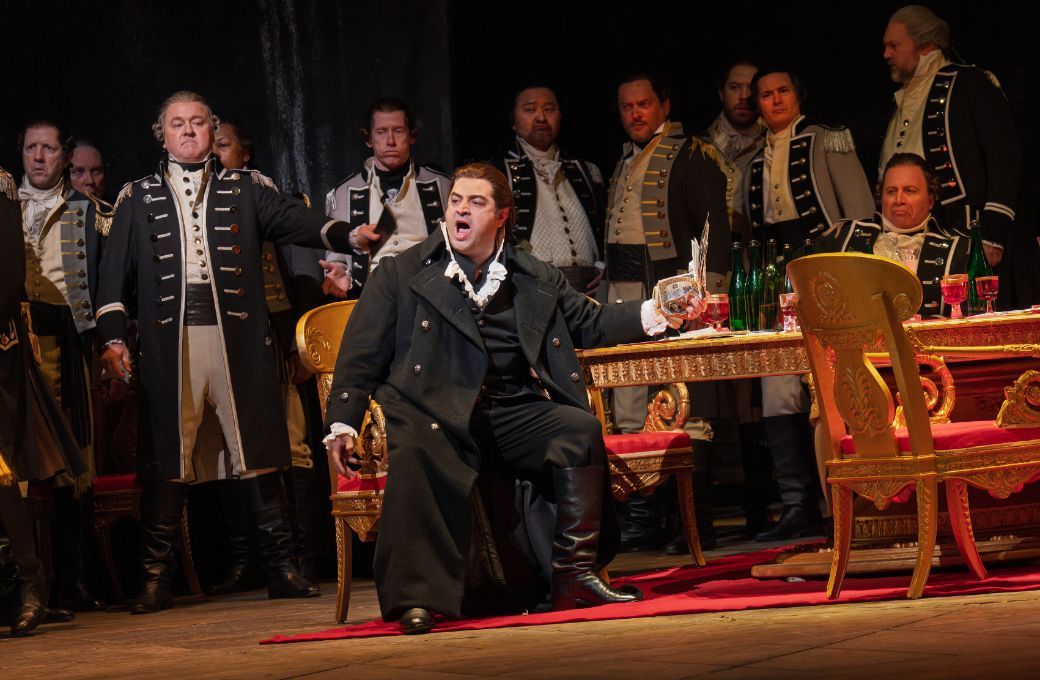Every critic dreams of witnessing a “star-is-born” moment, discovering on a whim an artist bound for an extraordinary career. At the Metropolitan Opera, singers like Roberta Peters and Kiri Te Kanawa began their illustrious associations with unplanned debuts, instantly announcing their importance by weathering the most difficult of circumstances. If Galina Cheplakova’s impromptu introduction as Lisa in the penultimate performance of The Queen of Spades was perhaps not on the level of those legendary forebears, it showed off a singer who could easily become a major asset to the house. Replacing an indisposed Sonya Yoncheva on just a few hours’ notice, she flaunted a silvery, easily produced soprano and sharp dramatic instincts, crafting a sympathetic portrayal of Tchaikovsky’s tragic heroine.

If some understudies strive simply to replicate the performance they’re covering, Cheplakova instead offered a distinct dramatic interpretation of Lisa, charting her ill-fated love affair with the gambler Herman with unwavering specificity. Her Lisa seemed colder and haughtier in the initial scenes – a true descendant of her grandmother, the forbidding Countess – until the revelation of Herman’s love melted her heart. Such a transformation rendered her ultimate betrayal all the more devastating, her suicide drawing genuine tears. Cheplakova had the mark for the character from beginning to end.
Vocally, it was a pleasure to hear a singer with a sweet-toned, shimmering voice essay this music. Cheplakova demonstrated great vocal agility and never seemed to push for volume, with impressive amplitude even when singing pianissimo. She also possessed stamina: where many singers tend to fall off after Lisa’s demanding third-act aria, she seemed only to gain in aural intensity during her cataclysmic confrontation with Herman. Surely her second-scene duet with mezzo Maria Barakova was one of the most purely beautiful musical moments of the Met season.
If the cover impressed with her poise and preparation, the rest of the cast proved more variable. Tenor Arsen Soghomonyan revealed a lovely, burnished tone as Herman, with a greater lyrical quality than one usually hears in this punishing role. Yet he sang tentatively for much of the performance, frequently holding back in a role that demands emotional release. And he spent most of the evening with eyes glued to the prompter’s box and conductor’s baton, which hampered his dramatic engagement with the proceedings.
Returning to the Met after an eight-year absence, Violeta Urmana cut a striking figure in Mark Thompson’s eye-catching costumes, making her greatest impression in the Countess’s silent entrance and jarring apparitional return in the final scene. Often inaudible, her voice suffered the Zwischenfach conundrum: having moved from mezzo to soprano and back again, she now sounds like neither. Urmana’s juddering delivery of the Countess’s second-act monologue – a stunning piece of narrative storytelling, full of ruefulness and regret – failed to hold the audience rapt, as it should.
Stalwart house baritone Alexey Markov sang with vigor as Count Tomsky, easily besting the gray-toned Yeletsky of Igor Golovatenko. I spent much of the evening wishing they would trade roles. Golovatenko demonstrated ample volume in Yeletsky’s second-act love aria, but his voice lacked the ardency to convince either musically or dramatically.
The Metropolitan Opera Orchestra played with agility and engagement under the direction of Keri-Lynn Wilson, who shaped the score beautifully, recognizing first and foremost the purpose of Tchaikovsky’s music in propelling the action of the story. The strings heaved chilling sighs to match the frigid Russian winter air. Woodwinds were robust and refulgent, and percussion exhibited the right martial quality to match the work’s military undertones. The chorus sang with gusto under Tilman Michael’s preparation – specifically the men in the third act, who moved effortlessly from drunken abandon to chilling piety at Herman’s suicide.
The late Elijah Moshinsky’s 30-year-old production remains a visual feast and a theatrical black hole. The static, pictorial set design (also by Thompson) hinder vocal projection and force the performers into awkward tableaux against the sprawling backdrops. For an opera that lives and dies on passionate obsession, the characters often feel siloed in space. Long pauses between scenes tarnish the work’s inexorable forward momentum, particularly after Herman learns the terrible gambling secret he desires and sets his own destruction in motion. With Wilson guiding such a strong reading from the pit, it seemed a shame to make him wait.


